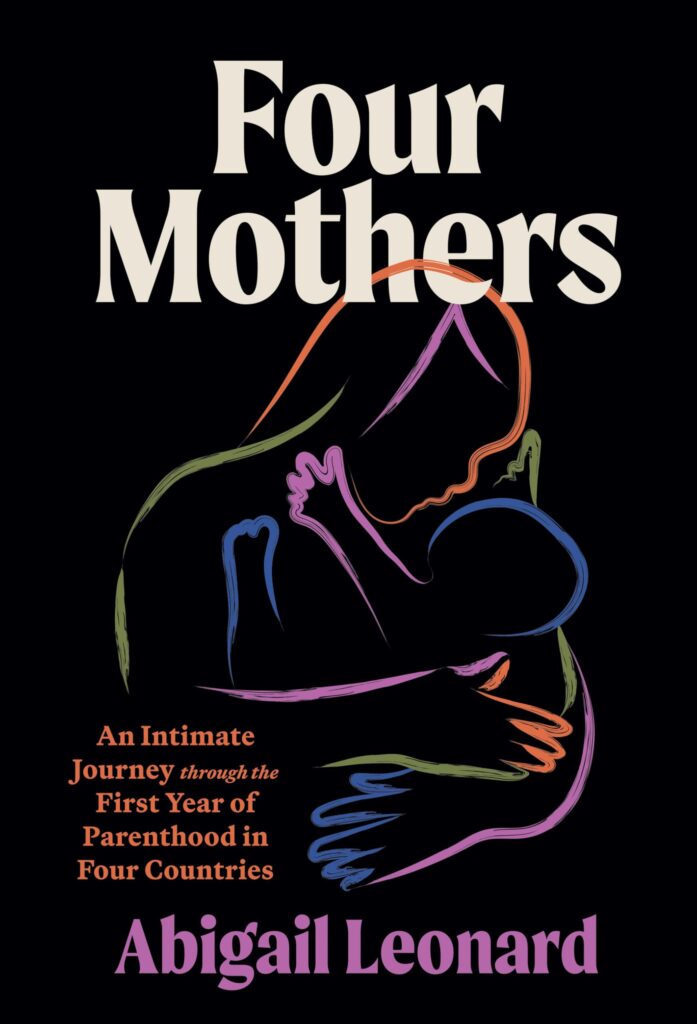
An American Pope
May 8, 2025
American ‘Squid Game’ Could Be Coming to Gitmo
May 8, 2025The way a society supports parents shapes not only women’s careers—but their sense of self, freedom and worth.
When I was six months pregnant with my first child, I moved to Tokyo from San Francisco. At the time, I told myself it was the sensible choice: My husband was spending one week a month in Tokyo to open the Japan office of a renewable energy company, and it was more practical for him to be there full-time. I traveled frequently too, as a journalist, but I wasn’t sure how feasible that would be with a new baby at home, and so I rationalized that an international move would at least make my maternity leave more interesting, and when the baby was a few months old, I would take advantage of the country’s quality public daycare and do freelance reporting. What could go wrong?
About six months after I had my son, I went back to work, covering Japanese news for American outlets. It was exciting to return to the professional world, where in many ways I still felt most comfortable. And as I reported on many of the social policies the government enacted, while simultaneously living out what they meant for families on the ground, I came to understand the contours of Japanese motherhood: a status upon which the country bestows a bevy of social services but demands significant personal sacrifice in return, particularly with respect to mothers’ professional ambition. It occurred to me that being “pronatal”—designing policy to increase the birthrate—is not the same as being pro-woman.
We later moved back to the U.S., after nearly seven years away. I had left the country without children and returned with three, and so much of American culture was now both familiar and strange. I approached motherhood back in the States with the same curiosity that I had in Japan. It was inspiring to be around so many professionally empowered women, but it also struck me that the sense of choice many American mothers had felt false. They were encouraged to succeed at work and at home with no commensurate support system; they had professional opportunity but lacked the public framework to make it reasonably attainable without significant wealth or full-time family support.
Often women are asked to sacrifice freedom for support, when what they should have is both.
It was the inverse of the problem Japanese mothers had. Here, mothers were expected to be professionals, but there was no universal daycare, no immaculate community centers where volunteer grandparents sang to small children—no real infrastructure for young families. After so many years abroad, I could see the negative space where those programs should have been and the suffering their absence caused.
Many of my friends battled to stay relevant at work and cobble together childcare; some were pushed out of the workforce because daycare was too expensive, others were stuck at awful jobs because their families needed the health insurance. What real choice did these women have about how to be mothers, professionals, partners? They were just surviving.
As I had come to understand, the way societies support families is critical to how women experience motherhood. Because while parents might feel like they have the freedom and responsibility to raise their children as they want, the truth is that many of the big decisions, like how much time to spend with their children and how to divide the emotional and physical labor with their partner, are heavily determined by the social structures of the place they give birth. And often women are asked to sacrifice freedom for support, when what they should have is both.
I became curious about whether there were other countries that were closer to getting it right, and what living there would be like. Could a system that was more responsive to parents’ needs improve their relationships, their children’s lives, even their sense of self? I began to report on that question and my book, Four Mothers: An Intimate Journey Through the First Year of Parenthood in Four Countries (out May 6), is the result. It follows four women—from the U.S., Japan, Kenya and Finland, who all had babies around New Year 2022—through their first year of motherhood, to draw an intimate portrait of their lives and compare the support they received.
The following is an excerpt from one of their stories.

Editor’s note: You may also like this Q&A with Abigail Leonard about the book and her research on parenting policy around the world.
Chelsea, Kenya
In Kenya, where laws promise breastfeeding protections but workplaces often ignore them, one new mother navigates the daily struggle to nourish her baby—and keep her job.
From the moment Chelsea sits down to work at the bank window at 8 a.m., she has back-to-back customers, but her mind keeps returning to Ada. She can’t shake the feeling that something has gone terribly wrong.
“I’m wondering if I could go home and find that my baby’s not there.”
Chelsea has seen the news reports about child trafficking and kidnapping, an alarmingly common occurrence here. An estimated 6,000 children are reported missing each year, an average of 18 a day, and some are even trafficked out of the country. There is a black market for infants, driven by a stigma around infertility; women can be kicked out of their home for not bearing children, so they might pay traffickers for a baby they are told was given up willingly.
Caught in a cycle of catastrophic thinking, the only way out is to video-chat Florence, her nanny, to see for herself that Ada is fine. Her breasts swell at the sight of her gurgling baby, and she waits impatiently for her lunch break so she can pump.
When it finally comes, she discovers that, as she’d suspected, there is no dedicated lactation room, even though the 2017 Health Act requires companies with more than 50 employees to have a space for women to express milk and a refrigerator in which to store it—part of the country’s push for mothers to breastfeed exclusively for six months. The bank where she works has considerably more than 50 employees, with branches across the country. But at this branch, at least, employees do not have lactation rooms.
Chelsea knows her office is noncompliant but feels little agency to do anything about it. She’d expected other women to have already come up with solutions, but incredibly, she seems to be the first nursing mother in the office. Or maybe just the only one still there.
She scours the facility for a concealed corner where she can pump. Finally, she settles for the book room, a storage area for documents and other miscellany. It’s relatively private, but the air is dank and the stench of old paper turns her stomach.
As she unpacks her pump, she can already hear coworkers calling for her: Chelsea? Chelsea! A customer needs help!
She’s on her lunch break, though, off duty for the moment, so she stays quiet and continues to fiddle with the flange until she gets it in position, then squeezes with her other hand and immediately feels the pressure in her chest release.
Suddenly, there is a slash of light and before she knows what’s happened, she sees one of her coworkers silhouetted in the doorway. He is looking for a file but instead finds Chelsea, wide-eyed and half naked. He turns as quickly as he came and leaves the room, a flurry of frantic apologies trailing in his wake. Chelsea is stunned, then mortified. But she decides there isn’t much she can do—Ada still needs to eat.
When she’s done, she sheepishly emerges from the room, now ravenous herself. She’d had to use both hands to operate the manual pump and couldn’t eat at the same time. But she only gets one break a day, and now it’s over.
An hour later, her phone buzzes with a message from Florence that fills her with panic: Ada has finished all the milk Chelsea left and is crying for more. Chelsea hasn’t yet received her paycheck so she can’t send the nanny money for formula. She knows the only solution is to ask her manager if she can leave early on her first day back.
“From the reaction, it felt like an inconvenience to her. They don’t really consider the fact that you just gave birth, you have a small child, you are readjusting. Things have changed for you as well, you’re no longer independent and able to come and go as you please, because you have to think of someone else who is totally dependent on you. They don’t really put that into consideration.”
Eventually she convinces him she simply has to go and, flooded with both guilt and relief, she returns home to feed her baby.

The issue of working conditions for mothers got national attention in 2019 when MP Zuleikha Hassan brought her 5- month-old to Parliament after her own childcare fell through. Hassan was frustrated because six years before, the Parliamentary Service Commission had mandated that a daycare be constructed in the building, but it never happened.
“I thought, if they don’t want to build a room for babies then I’m going with my baby inside the chambers,” she recalls from her office in Kwale county, wearing a hijab and gesturing emphatically. “Traditionally, women took their children with them as they worked on farms or at markets because it was important they be together, so why not in modern workplaces?”
Hassan knew she would not be welcome in Parliament with a child, so rather than go in the front door, she used a side entrance that members usually use to access the bathroom. But a security guard spotted her with the infant and shouted at her not to go inside. “So I just grabbed the door and ran in,” she says conspiratorially. “I’m pretty big so he would have caught me if he was close.”
Once she was in the chamber, though, only the speaker could remove her, and at the time, he was at the lectern arguing that Kenya should take military action against Somalia.
“When he saw me, he just lost it because here’s this macho man with the testosterone, I mean, how much more manly can it get than war? And then there’s a woman and baby interrupting that very important, masculine time,” she laughs.
The chamber erupted in shouting and pushing with Hassan at the center of the fracas, holding her infant daughter in a pale pink blanket.
One MP asked her pointedly, what if the baby vomits on me?
“Well, how do you know that you didn’t vomit on people?” she remembers thinking. “Maybe your mom went to an important meeting, so if you vomited and you pooped on someone, why can’t someone else? This being is another Kenyan, a person who’s coming up and you’ll depend on them in future.”
The incident made international news. “And by 5 that evening, there was a crèche in Parliament,” she recalls.
Some of her critics claimed the facility had already existed but she laughs that off. “They are really big, fat liars because I went with them to that room and said, ‘These are all new things, they’re spotless and there’s no staff member manning the room. Why can’t you just admit it didn’t exist before today and say sorry?’”
For her, the issue is bigger than just getting childcare in Parliament. She is now pushing the Breastfeeding Mothers Bill, which would require employers to provide facilities for infants.
“If as an MP I’m suffering, how about if you’re just an ordinary Kenyan who is not privileged? Obviously, they’re going to be suffering much, much more.”
Great Job Abigail Leonard & the Team @ Ms. Magazine Source link for sharing this story.






